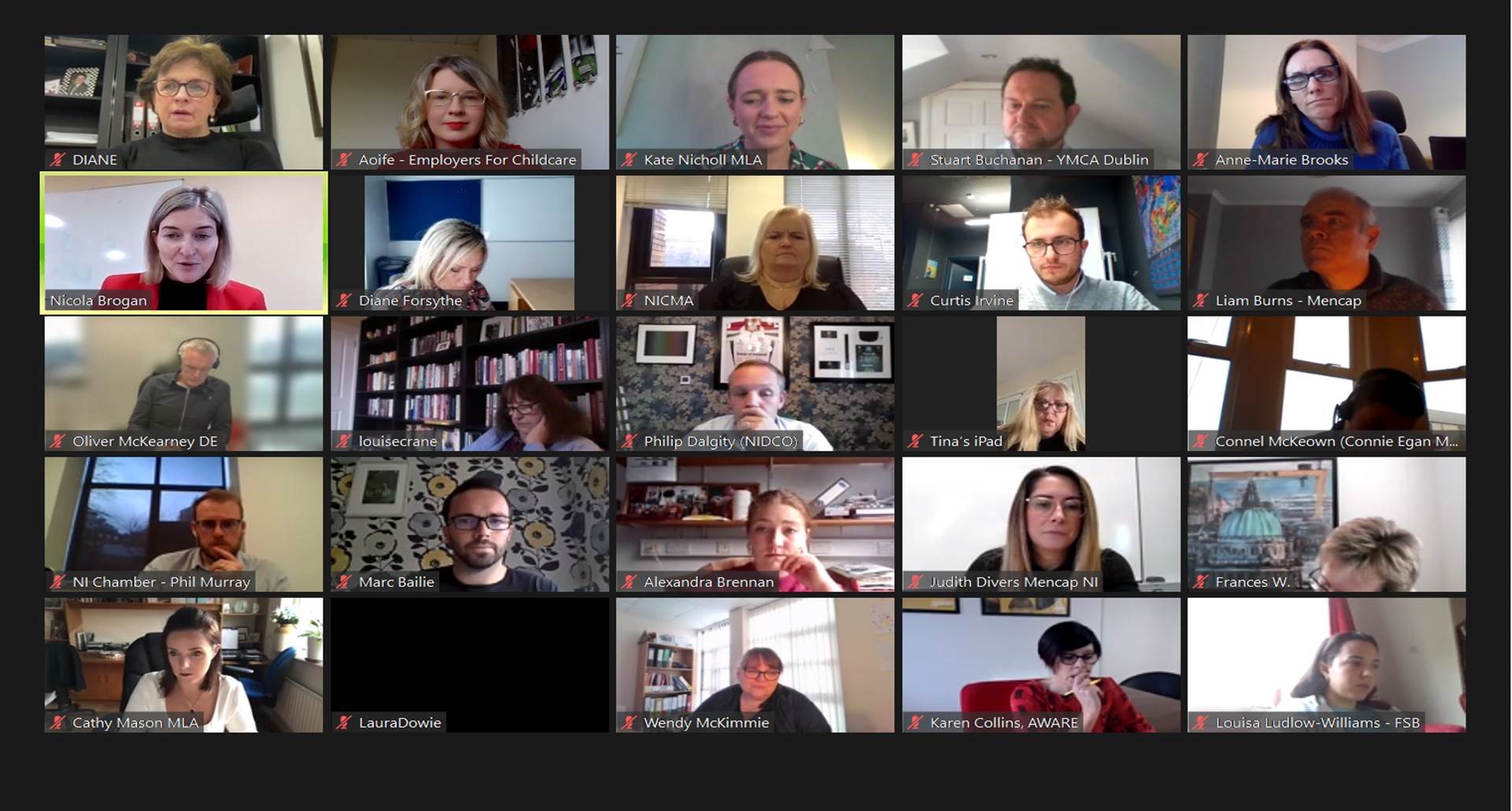What does the Chancellor’s Autumn Statement mean for families?
Yesterday (22 November 2023) Chancellor Jeremy Hunt delivered his ‘Autumn Statement for Growth’, aimed at building a ‘stronger and more resilient economy. This is the second Autumn Statement for the current Chancellor, since coming into office last year. Since then there has been a significant reduction in the rate of inflation, which is currently 4.7% having fallen from its high of over 11% and the Office for Budget Responsibility (OBR) predicting that it will fall further to 2.8% by 2024.
This is welcome for households and families who are seeing an easing of the cost of living pressures that we all have been living with over the past couple of years. These falls have given the Chancellor some opportunity for spending in this budget which, through lowering of some taxes, will help some working families across the UK.
Key points
Here are some of the key points from the Autumn Statement at a glance:
- Wages: The National Living Wage will rise by 9.87% to £11.44 per hour from April 2024 for those over 21, and by a similar proportion for younger workers.
- Benefits: Working age benefits will rise by 6.7% from April 2024, in line with September’s inflation figure. However, pensioners will see a higher rise of 8.5% in the state pension and pension credits.
- National Insurance: A 2% reduction in National Insurance contributions for most employees from January 2024 and for the self employed the abolition of Class 2 National Insurance and a 1% reduction in Class 4 National Insurance from April 2024.
Read the full detail on today’s Budget on the Government’s website here.
National Living and Minimum Wages
From April 2024 there will be an increase in the National Living and Minimum Wages across the UK of approximately 9.8%, and from 1 April 2024 the age threshold will be lowered from 23 to 21 years of age. The rates from April 2024 are set out below:
- £11.44 per hour for workers aged 21 years and over – National Living Wage
- £8.60 per hour for workers aged 18-20 years
- £6.40 per hour for all workers under the age of 18, who are no longer of compulsory school age
- £6.40 per hour for apprentices under 19, or for first year apprentices aged 19 or over.
This will be a welcome uplift for workers, and is above the current rate of inflation. But critically, in many sectors, including childcare, there will be real challenges for employers in implementing these uplifts without proper investment from Government.
For example, within group childcare settings, staff salaries account for a significant proportion of costs. It is absolutely right that early years and childcare professionals should be paid a fair wage for the vital work they do, but without significant investment in funding for the sector this is likely to cause real concern about where the money will come from. This increase in salary costs will put further strain on a sector that is already struggling, and is likely to result in further increases in fees for parents, precisely when families are already under immense pressure. It could also compound existing difficulties within the sector regarding the recruitment and retention of staff, and result in some providers having to cut the number of childcare places they can offer.
Personal taxes
Most employees have to pay two forms of tax through their employer, these are Income Tax and National Insurance.
There will be a cut in the main rate of Class 1 National Insurance from 12% to 10% which will take effect from 6 January 2024. This means the someone on the average salary in Northern Ireland of £32,879 would see an annual gain in their net income of £406.
There will be no change in the rates of income tax and a continued freeze in the tax-free personal allowance and the thresholds at which you start to pay basic and higher rates of income tax until April 2028. This means that more people will be paying tax, and more will be paying tax at a higher rate.
This change in the National Insurance rate will have an impact on parents who are using Childcare Vouchers, by reducing the amount of savings available through that scheme.
Note: These rules apply in England, Wales and Northern Ireland. Scotland has different rules to the rest of the UK. The Scottish government will set out its tax and spending plans for 2024/25 on 19 December 2023.
Self-Employed National Insurance changes
From April 2024 the self-employed will no longer be required to pay Class 2 National Insurance, saving the average self-employed person £192 per year compared to what they were due to pay next year. However, those with profits of over £6,725 will still get access to contributory benefits including the State Pension through a National Insurance Credit
In addition, the rate of self-employed Class 4 National Insurance will be reduced from 9% to 8%.
Uplift in benefits
In a welcome announcement, the Chancellor confirmed that benefits, including Universal Credit and Tax Credits, will be uplifted by September’s rate of inflation – 6.7% – from April 2024, rather than the lower October rate of 4.6%. This is something that Employers For Childcare, along with many third sector and civic society organisations, has been calling for.
This is vital to support people on the lowest incomes, but it is important to note that many families will still struggle to pay for their basic essentials in the months from now until April, and beyond. Across the UK, there are almost 4 million children living in poverty. This isn’t right and more needs to be done to support the most vulnerable in our society.
The State Pension and Pension Credit will also be uprated, this will be in line with average earnings growth of 8.5%, and the Chancellor restated the Government’s commitment to the pensions triple lock.
The support for tenants in the private rented sector will be increased by increasing the Local Housing Allowance (LHA) to 30% of average local rent. This means that from April 2024 private renters in receipt of Universal Credit or Housing Benefit will receive more towards their rent than they have been receiving since the LHA were frozen in 2020.
No change in support for childcare
Despite the rapid rise in the costs of accessing and delivering registered childcare over recent years there is no increase in this Autumn Statement to the amount of financial support given towards registered childcare costs. The amount of childcare costs that could be claimed though the childcare element of Universal Credit was increased in July 2023, however there was not, and still has not been, an equivalent increase to the childcare element of Working Tax Credit. This discrepancy means many families in the old benefit system are unable to claim support towards the full amount of their childcare costs, that those within Universal Credit are able to claim.
Similarly, the maximum amount of support given through Tax-Free Childcare remains capped at £2,000 per child, despite the continued rise in childcare costs. Currently Tax-Free Childcare pays 20% of registered childcare costs up to a maximum of £2,000 per year, per child, Employers For Childcare has been calling for an increase in both the percentage of childcare costs supported and the removal of the £2,000 cap, to better reflect the increased childcare costs that families are now having to pay.
This is a particular challenge for families in Northern Ireland as investment in childcare announced by the Chancellor during the Spring Budget earlier in the year, and being rolled out to families in England, do not apply here. Across the UK, families in Northern Ireland receive the least support with their registered childcare costs.
Northern Ireland
As a result of the Autumn Statement announcements Northern Ireland, through the Barnett Consequential, will receive £185 million. Of this, £75 million will be allocated to repaying a portion of last year’s overspend, leaving £110 million for the NI Executive to spend on health, education and other public services. This will be paid over a two year period in 2023/24 and 2024/25. However as Northern Ireland remains without a functioning Executive it is unclear when and how this money will be allocated across the government departments.
We are here to help you
We know it can be difficult to work out what financial support is available for your family and to interpret what changes announced in the Autumn Statement mean for you. We want to make sure all families are receiving everything they are entitled to. For free, impartial and confidential advice, call our Family Benefits Advice Service on 028 9267 8200 or email hello@employersforchildcare.org.






